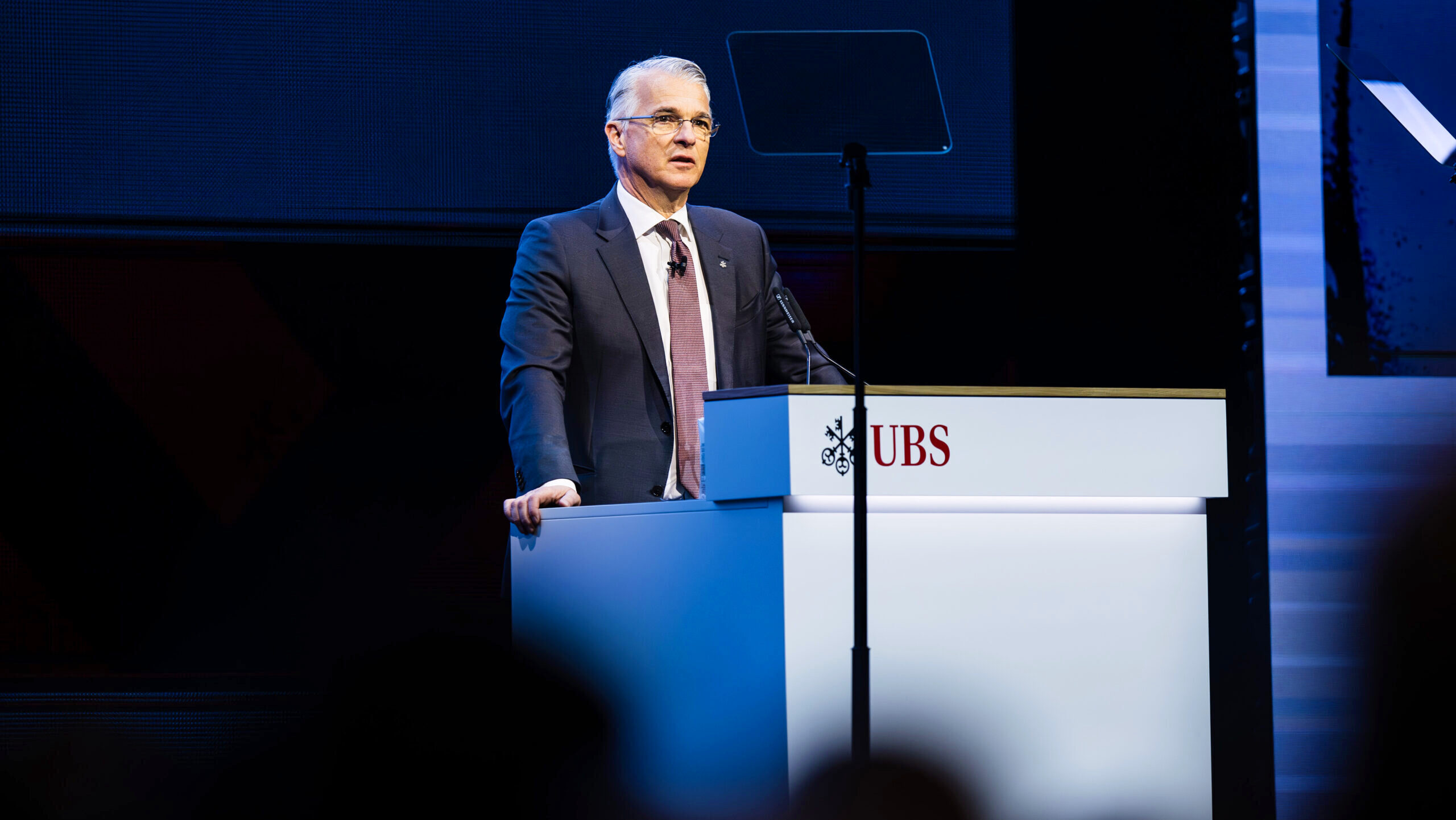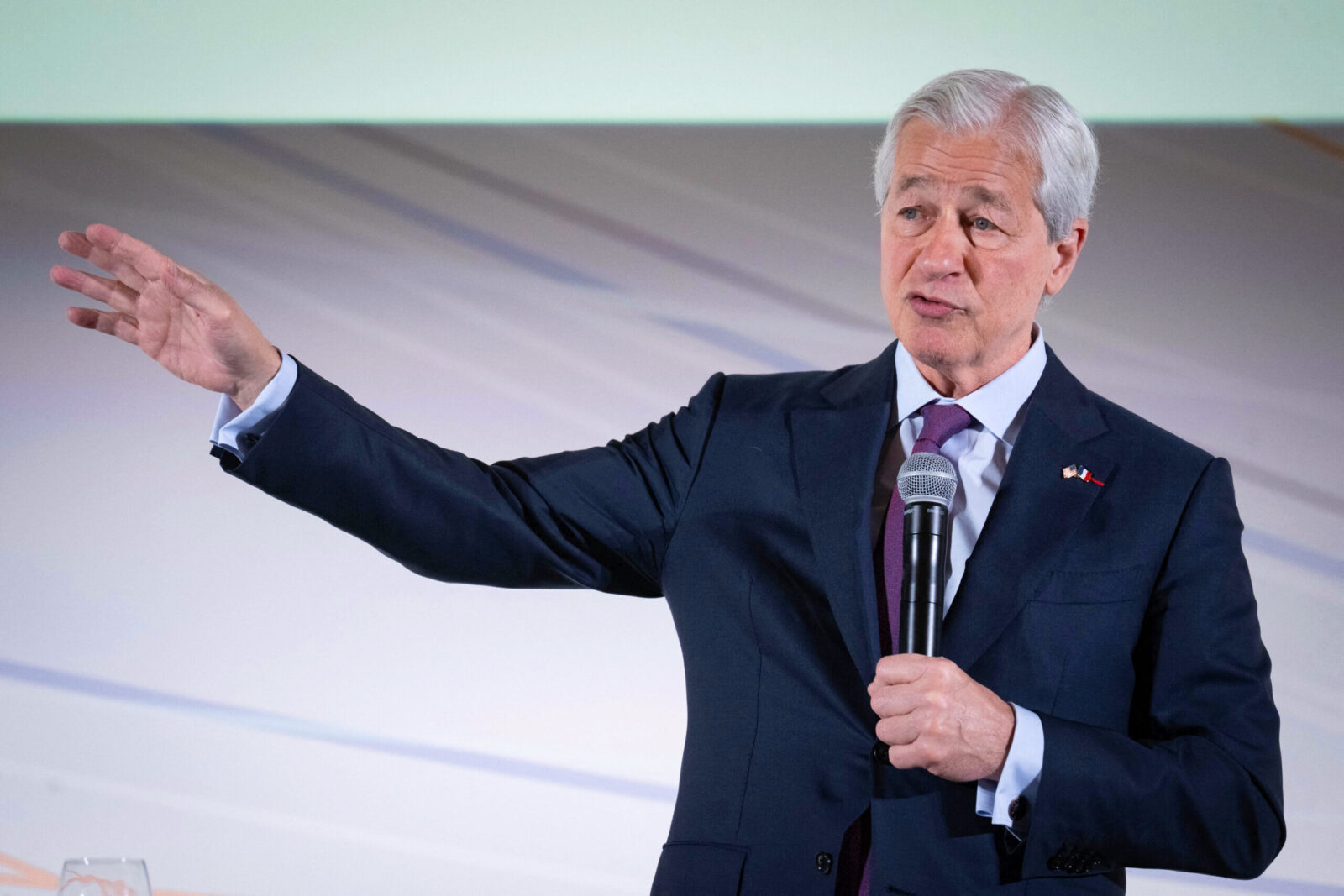Leave the Swiss Alps for the US? That’s a Mountain Too High, UBS CEO says
These days, relations between the Swiss government and UBS are as cold as the La Brévine valley in December.

Sign up for smart news, insights, and analysis on the biggest financial stories of the day.
The Swiss have never been big, or at least loud, on homeland solidarity, but this seemed to come close.
For months, word has circulated that Swiss multinational investment bank UBS might leave its Alpine homeland for the US in order to escape punitive regulatory changes.
Last week, CEO Sergio Ermotti did his best to put the idea to rest, calling the speculation an unprintable eight-letter word for an animal dropping that rhymes with wool knit. But the Swiss finance minister reasserted the government’s support for reforms that Ermotti said are unworkable, making it harder to dismiss reports that the bank has had contingency talks with top US officials.
Stuck Between a Stein and a Hart Place
These days, relations between the Swiss government and UBS are as cold as the La Brévine valley in December, a situation that has its roots in 2023, when officials brokered an emergency sale of collapsed Credit Suisse to its onetime rival. The government provided liquidity and loss guarantees and wrote off billions in bonds as part of the sale, sparking fears that Switzerland would struggle to bail out the new, outsized entity if another financial crisis materialized.
To address those concerns, officials proposed forcing UBS to add an extra $26 billion in capital, a measure that Europe’s largest activist investor and UBS shareholder Cevian Capital said would make running a global investment bank in Switzerland “not viable.” UBS agrees and, reports suggest, has been working on escape plans. Last week, the Financial Times reported UBS chair Colm Kelleher and US Treasury Secretary Scott Bessent held private talks about a stateside relocation. Publicly, UBS has put on a different face: Ermotti told a banking conference three days after the FT report that UBS “never, ever threatened to leave the country,” though he reiterated that the new capital requirement “won’t work for us.” The result is a good old-fashioned political impasse:
- On Friday, Swiss newspaper Le Temps reported that finance minister Karin Keller-Sutter backed the government’s “perfectly reasonable” capital demand. “Taxpayers should not have to foot the bill again in the event of a crisis,” she said.
- Swiss parliamentarians could break the deadlock: Members of the economic affairs committee of the National Council’s lower house, which is involved in banking regulations, argued in a letter that new capital requirements shouldn’t be more onerous than those in other international financial centers.
Kayfabe on the Aare: David Benamou of Axiom Alternative Investments, which holds UBS bonds, told Swiss publication Finews that UBS’s talks with US officials were “more of a tactical reaction to political pressure in Switzerland.” While it’s clear Ermotti intends to expand in the US, he said, a full relocation would be “counterproductive because UBS’s foundation remains in Switzerland, not least because of the brand and the trust it enjoys worldwide.”











